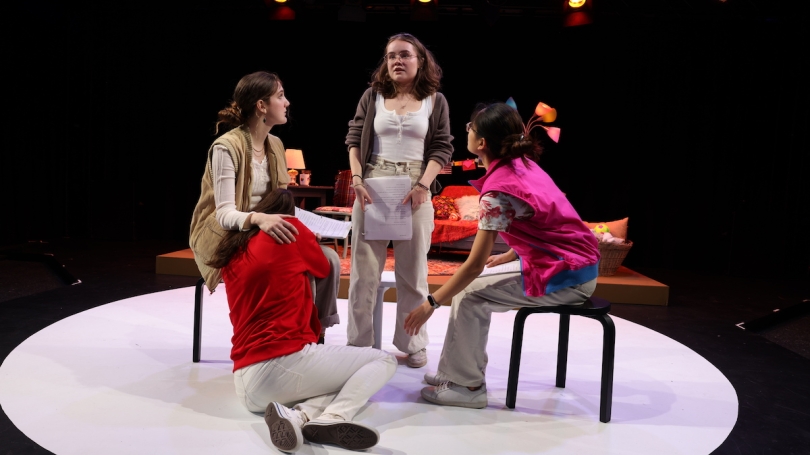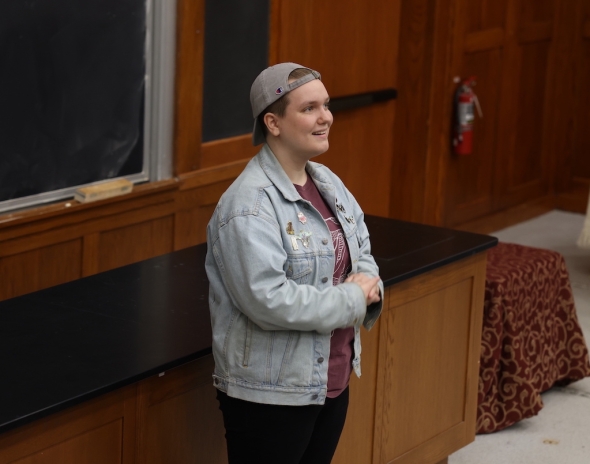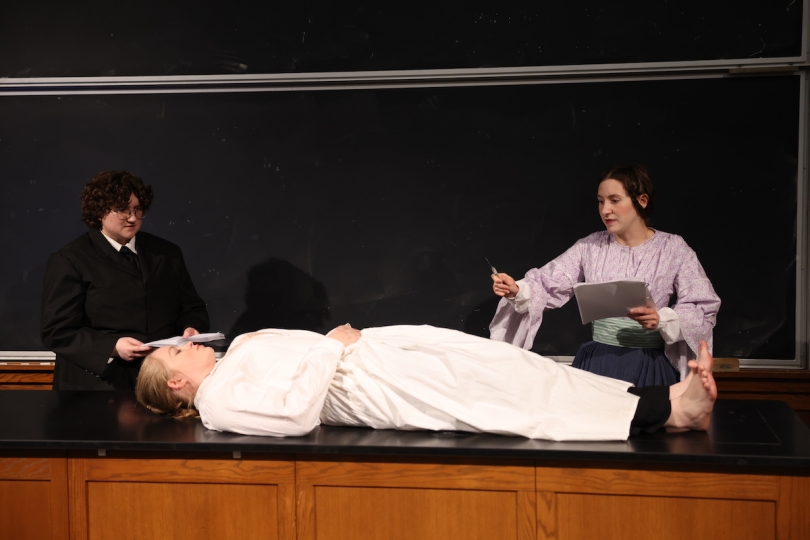

The Department of Theater produced two plays this spring based on senior honors theses in playwriting. 'Orphan Play' probes themes of grief and loss, and 'Anatomical Hearts' celebrates being trans and queer.
The Department of Theater produced two plays this spring based on senior honors theses in playwriting.
"We have a fascinating convergence this year in which both honors thesis projects were in playwriting," says department chair Rebecca Biron. "These plays are incredibly moving and relevant to urgent contemporary social issues."
Professor of Theater Peter Hackett, Avalon Foundation Chair of the Humanities, produced the plays. "The honors thesis in playwriting continues the Dartmouth tradition of preparing young writers to make an impact on the American theater scene," he says.
Orphan Play by Maggie McDonald '23 follows a playwright as she tries to write an autobiographical play and relives her memories in her imagination. Based on MacDonald's life, the play grapples with grief, loss, and the traumas of growing up. It was performed on May 5 and 6 in Wilson 301.
Anatomical Hearts by Lila Hovey '23, which will be performed May 26 and 27 at 8 p.m. in 006 Steele Hall, was first inspired by an episode of a medical history podcast that Hovey listened to in the spring of 2021.

The podcast told the story of James Miranda Barry, an Irish surgeon noted for performing the first C-section in Africa where mother and child survived. At his death in 1865, his body was inspected and, after 56 years of living as a man, it was discovered that he was assigned female at birth.
"The story stuck with me because the facts of his life—his accomplishments, his intelligence—butted up against much of the discussion of him as a sad, repressed woman," Hovey says. "The story felt so trans to me and as a lover of 19th-century history, fashion, and fiction, it was enthralling to learn about someonewho felt, at least in some ways, so much like me, despite living two centuries earlier."
The podcast prompted Hovey to research more medical history, and ultimately, write a play as their senior honors thesis that draws inspiration from Barry and other historical figures, including three Black men Harvard Medical School admitted—and then forced to withdraw—in 1850. (One of these students, Daniel Laing, completed his degree at Dartmouth in 1854 before practicing medicine in Liberia.)
"With Anatomical Hearts, I'm asking: What does it mean to be embodied, trans, and queer? What did that mean in 1850? What about today? Being trans and queer in 2023, we're often told we don't belong," Hovey wrote in the play's program notes.
"Writing a story like this, drawing from historical research, is my way of saying, 'we've been here for centuries and we're not going anywhere.'"
"Personally, as a transmasculine nonbinary person, creating something so unapologetically queer for the Dartmouth stage feels especially important," Hovey adds. "There isn't enough trans—especially transmasculine— representation in the body of plays that currently exist."

For Hovey, seeing classmates bring the play to life was especially moving.
"It's been so special to realize how this script is not just meaningful to me, but has become meaningful to a whole room of people," Hovey says. "Every actor brings something to the character that I would never have imagined but lets me see them in a new way. I can't wait to share it with the rest of campus."